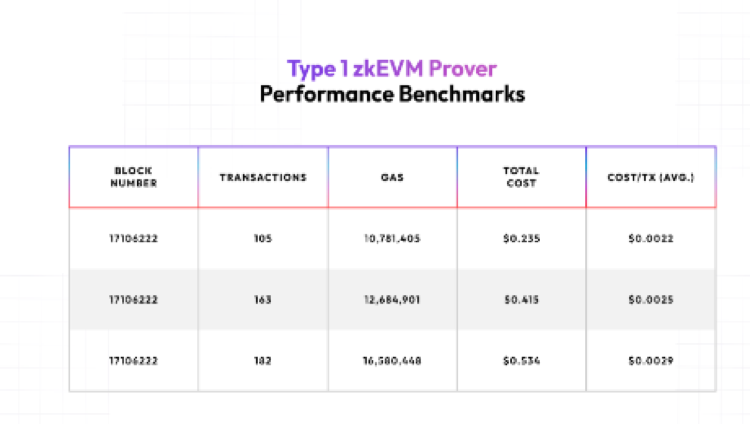Polygon Makes It Possible For Ethereum Chains To Evolve Into ZK Layer 2s
2024-02-09 07:43:31A newly developed zkEVM prover is poised to enable EVM chains to function as zero-knowledge proof-powered layer 2 solutions within the Ethereum ecosystem.

Source: news.bitcoin.com
Polygon, an Ethereum scaling protocol, has introduced a new Type 1 prover that allows ecosystem chains, such as optimistic rollups, to leverage zero-knowledge proofs (ZK-proofs) for layer-2 functionality. Following Polygon's announcement that its next-generation Polygon zkEVM Type 1 prover will be open-source for Ethereum ecosystem participants, Polygon co-founder Brendan Farmer spoke exclusively to Cointelegraph.
According to Farmer, the development of this technology, which received assistance from Toposware, has been in progress for a year. It unlocks the capability to generate ZK-proofs for mainnet Ethereum blocks at an average cost ranging from $0.002 to $0.003 per transaction. The Type 1 prover is dual-licensed under MIT and Apache 2.0 and will be accessible on GitHub.
Farmer expanded on the significance of a Type 1 prover, highlighting its role as the pinnacle iteration of zkEVM technology. It empowers the conversion of various chains, such as Ethereum layer 1, optimistic rollups, or alternative L1 solutions, into a zkEVM L2. This seamless integration with Ethereum and Polygon's aggregation layer fosters trustless participation within the Polygon ecosystem. Despite previous doubts surrounding the practicality and economic viability of a layer-1 prover, Farmer stressed the team's success in attaining efficiency and affordability through this breakthrough advancement.

Polygon's Type 1 zkEVM prover benchmark data, Ethereum blockchain layer-1 block proving costs.
The advancement carries significant implications for the broader Ethereum ecosystem. Farmer elucidated that the technology enables the creation of ZK-proofs for any Ethereum Virtual Machine (EVM) chain. Furthermore, he emphasized that this technology serves as a public utility for the Ethereum ecosystem by eliminating the necessity for users and services to uphold a full node.
In envisioning a scenario where we generate proofs for Ethereum L1, individuals could verify a zero-knowledge proof directly in their browser without the need to operate a full node. This provides the security assurances of a full node without the associated complexity and inconvenience, Farmer explained. Polygon's announcement delineates the framework of zkEVM originally proposed by Ethereum co-founder Vitalik Buterin. These categories range from 1 to 4, signifying the level of compatibility with Ethereum and its EVM.
Disclaimer: FameEX makes no representations on the accuracy or suitability of any official statements made by the exchange regarding the data in this area or any related financial advice.